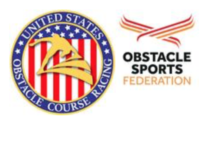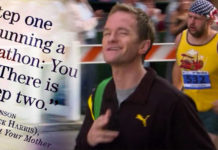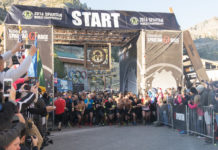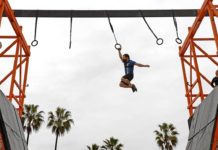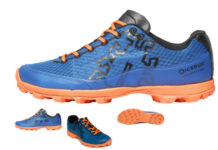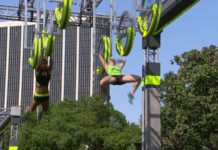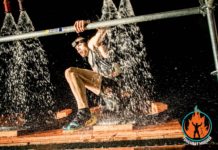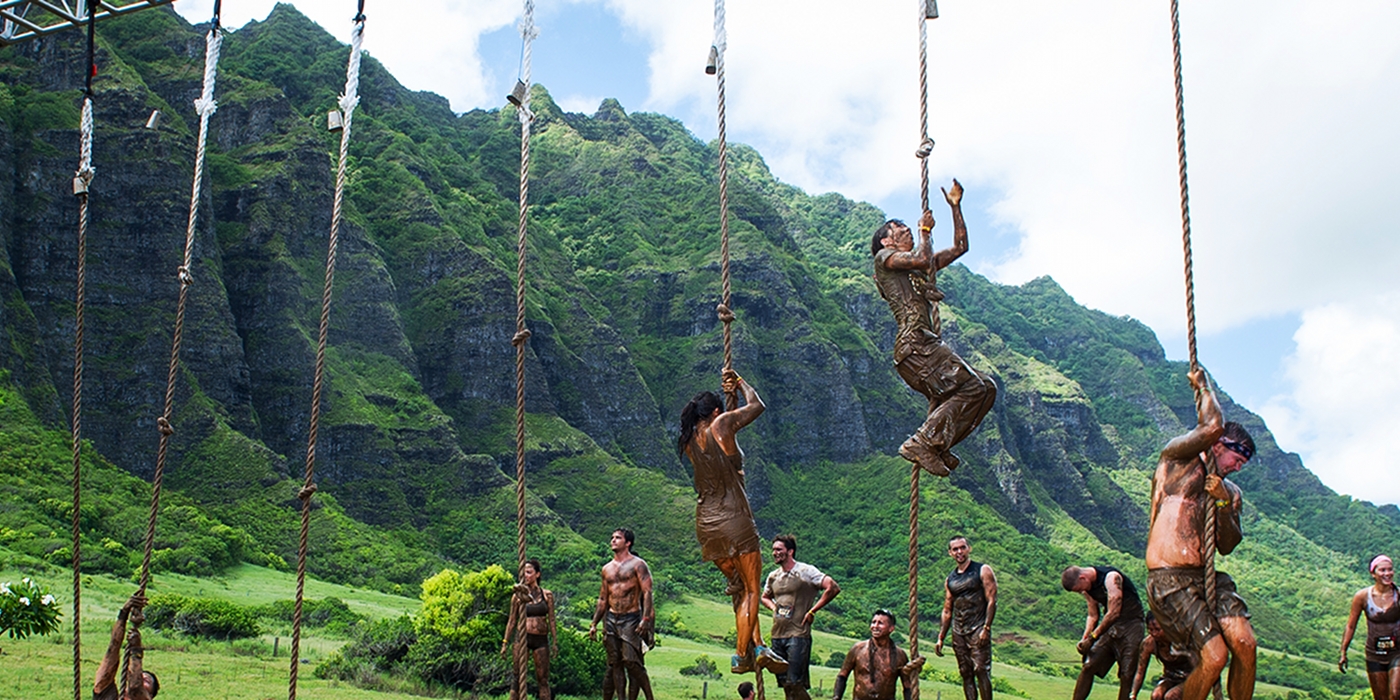There has been a great deal of chatter lately about Obstacle Course Racing as an Olympic event. Most recently, Spartan Race founder Joe De Sena attributed his removal of the iconic gladiators from the end of his races to an effort to comply with Olympic restrictions. I suspect this reason probably sounded better than what was actually going on – namely insurance issues, but it got enough people talking about OCR and the Olympics.
Beyond that, there are now not one but two groups setting themselves up as international governing bodies for Obstacle Course Racing, as well as a group promoting itself as a national governing body. This latest development is described in this article at Mud Run Guide, which reports on the the creation of the International Obstacle Race Federation and the International Obstacle Racing Federation.
It is too early to say which of the two IORFs will prevail, though I expect a certain amount of “People’s Front of Judea”-style sniping in the next few years. It could well be that neither group will be the one that brings OCR to the Olympics.
These are all good developments for the sport, but if any of these actors wish to achieve their stated goals of bringing OCR to the Olympic Games, there are significant hurdles, ones that will take years to overcome, if indeed they can ever succeed.
It is easy for OCR enthusiasts to see the obvious merits of including the sport in the Olympics. The top athletes in the sport are as strong and as talented as the world’s best sprinters and weightlifters, right? Instead, let’s look at it from the other direction. How would the International Olympic Committee go about adding OCR to the Games, and why would they want to?
There are procedures in place for adding sports to the Games. You can get a good idea by looking around at the IOC’s website here and here.
Every few years, the IOC votes on whether to adopt certain sports, keep other sports, or drop them from the roster entirely. A variety of factors are in play when the IOC makes this decision. The logistics and costs associated with some sports have kept them out of the Games or caused them to be dropped. An obvious example was the recent decision to drop baseball and softball: the host cities were left with facilities that had little use in the post-Games “legacy” (not much baseball gets played in Athens), and the geographic appeal of the sports was limited. Sometimes the decision to keep or drop a sport is based more on internal IOC politics. Wrestling has been fighting to retain its slot, despite the fact that it is a sport that requires little in the way of infrastructure, has global popularity and has a long history in both the modern and ancient games.
The Games are already too large in the eyes of the organizers. Adding any new sport either means dropping another sport or cutting back on the number of events in another sport. OCR athletes may feel that, say, team handball or hockey (“field hockey” to most Americans) could be cut, but they have strong support from other delegations that are smart political players within the IOC.
So there are plenty of reasons the IOC would not be interested in adding OCR to the mix: the Games are already too big, OCR is currently a competitive sport in only a few countries, and there are other sports that have been knocking on their doors for much, much longer. There are also plenty of reasons to add OCR: it does not require building an expensive facility that can’t be used for any other purpose after the Games, the classic “white elephant” problem that plagues many host cities. OCR looks great on television, a key ingredient in any IOC decision. Finally, the sport is young enough that the IOC can influence its development from the start, rather than have to adapt to the schedule and format of a well-established game (think ice hockey).
How soon could we expect to see OCR Olympians? The short answer is: don’t hold your breath. Tokyo has been selected as the host of the 2020 Games, and while the programming is not set in stone, adding anything to what is already a tightly scheduled format is unlikely. I can think of only one way to shoehorn OCR into the schedule, and that is for it to be taken under the wing of another sport. Your typical obstacle course race combines elements of running as well as what I think of as “feats of strength”. Running is a top sport at the Games, called Athletics (“track and field” to Americans) which also includes events like the javelin throw, probably close to the heart of Spartan Race’s Joe DeSena. Climbing over a wall is not that far in concept from leaping over hurdles. The steeplechase event even includes water obstacles. If OCR were to be added to the Athletics schedule as a new discipline, it would be much easier to include in the Games. It might even give the IOC the excuse to remove race-walking, which is losing support rapidly. Alternatively, OCR might get tacked on to the weightlifting events (which, if you ever get the chance, you should go see, as they are surprisingly exciting, even if you know nothing about the sport). There is plenty of overlap between a weightlifting meet and, say, the CrossFit games.
As a new sport, what OCR is trying to is neither impossible nor unprecedented. It is generally accepted that the first triathlon took place in 1974. It became an Olympic sport a quarter century later at the 2000 Games in Sydney. If you trace the history of OCR as a competitive sport back to, say, 2010, we have another two decades to go before we can expect to see OCR in the Games. I hope that I am wrong about this. We are used to living in “internet time”, which seems to shrink the span of any process that used to take longer. The IOC lives on its own terms, and if they want to make something happen, and if the money is there to motivate them, a new sport could get introduced sooner.
Should we care about this? There are pros and cons to turning OCR into a sport that fits with the Olympic movement. As Mud Run Guide’s Brett Stewart points out, making OCR into a globally accepted sport means standardizing it. Obstacles will have to be the same around the world so that a competitor in Australia can compare herself with a competitor in Greece. This means that races will lose an element of surprise that so many racers find enjoyable. It also means that there will be little innovation when it comes to obstacles, as racers will need to compare events over many years. It will create a bigger divide between the producers of larger events (Spartan, etc.) and the smaller mom and pop local races that might have trouble staging an event that meets international standards. We may see fewer and fewer “quirky” obstacles, as these will not meet with the approval of an international governing body.
On the other hand, standardization of events and professionalizing the management of racecourses will make it easier for events to get insurance. This could make races more affordable for everyone involved, and safer as well. Elite athletes will also have a more predictable path to success in their chosen sport. These are all good things. On balance, I think that the benefits to everyone taking part in the sport outweigh any potential risks. There are already moves being made in this direction with the development of a national governing body, the USOCR.
Much of what the USOCR has been doing so far has involved getting races insured, which may sound rather mundane, but by giving race directors safety guidelines to work with, it can help make the sport more accessible and safer at the same time. You can find a good articles about what USOCR plans to do from On My Way to Sparta and Outside Magazine, and another good article about why a national governing body is important in an article written early last year at Dirt in Your Skirt.
Does it matter how long it takes OCR to make it into the Games? The average weekend racer will not care one way or the other. Millions of Americans run marathons every year, and almost as many race in triathlons. How many of them could name a professional marathoner? Or a member of the US Triathlon team? They just know that they enjoy racing and appreciate the training that allows them to succeed on race day. OCR will stand or fall on its own merits, but attempts to bring the sport to the Olympics, even unsuccessful attempts, will make the sport better for us all.



